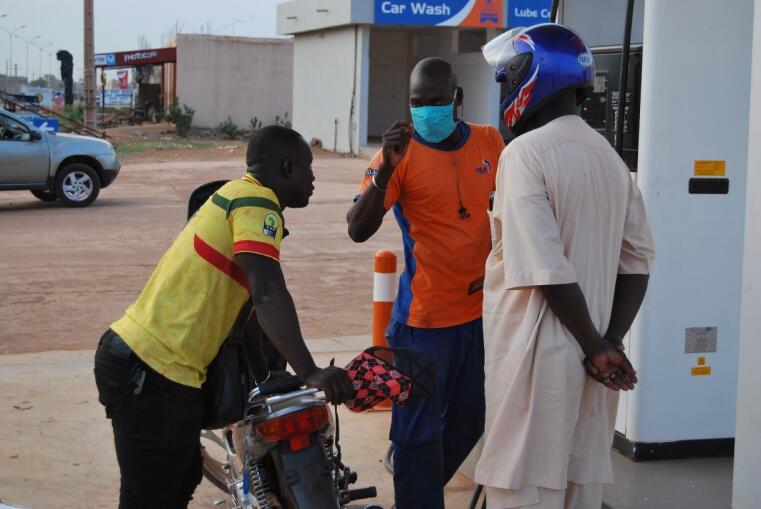Social space as a threatened sphere
By social anthropologist Dorothea Schulz

Just as various European governments have taken a range of measures in recent months to prevent or curb the spread of Covid-19, so countries on the African continent differ significantly in the measures they adopt, in the extent to which their governments intervene in certain areas of public and economic life, and in governmental enforcement of protective measures.
Likewise, many citizens of African countries similarly perceive the restriction of spatial mobility both as a radical threat to their chances of daily survival and as an almost unbearable interference in conventional forms of socializing.
Here, many interviewees in Kenya, Uganda and Mali feel particularly concerned that state restrictions threaten their self-image as a social being, an understanding of the human, and of humanity, which is expressed in the saying “The world is conversation” (dinye ye baro ye in Bamanakan, the lingua franca of southern Mali). The saying equates human existence with sociability, with sociability being defined as the willingness and ability to engage in dialogue with others. Accordingly, many Malians see the current state regulation of spatial proximity and the requirement to wear a facial mask in public as creating a social distance that goes against the essence of being human as it renders direct verbal communication impossible.
Vivid proof of this conception of space as a site of human interaction is given by the nickname corona dagara, coined in Mali soon after the introduction of face masks for those wearing a maski (derived from the French masque). The literal meaning of corona dagara is “corona mute”. The fact that wearers of face masks are equated with deaf-mutes implies that a physiological disability is reinterpreted as a social handicap – and that those who make themselves the victims of this limitation are (if only jokingly) denied the status of social beings in the full sense of the word.
Even if the nickname is used as a harmless joke rather than as an insult, it highlights that restrictions related to Covid-19 change common perceptions of social space, social proximity, and distance. As restrictions are imposed on verbal communication, deemed constitutive of human existence, distances between people seem to widen. Widespread resentment of these social implications may be one reason for the widespread resistance to the officially decreed face mask in Mali, and why its use is only enforced in buildings of state administration and the service sector, and is otherwise left to the individual.

